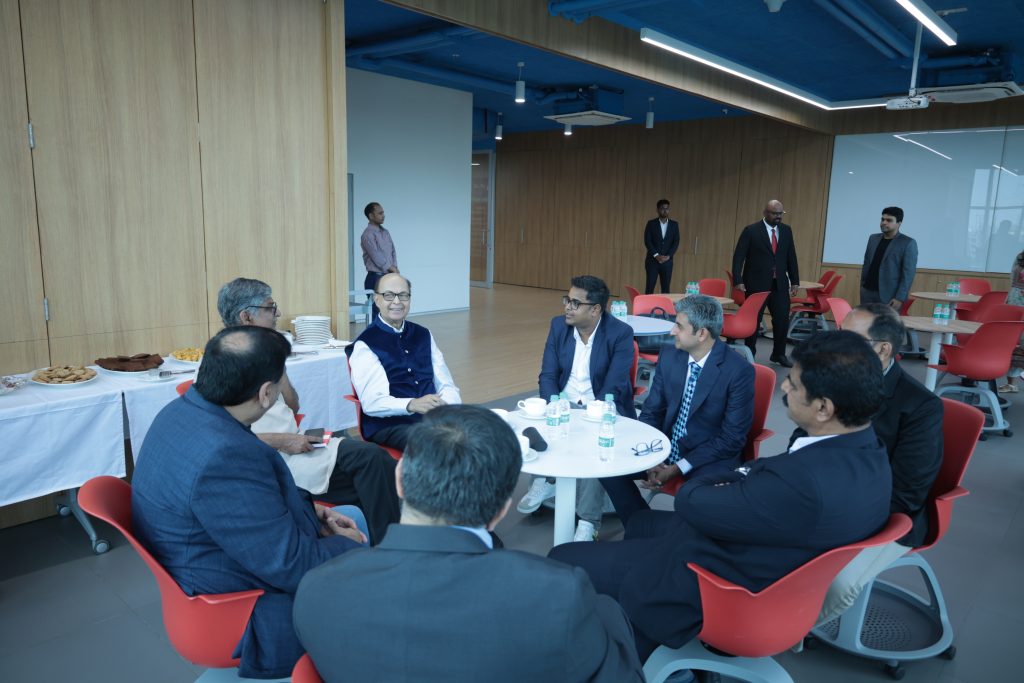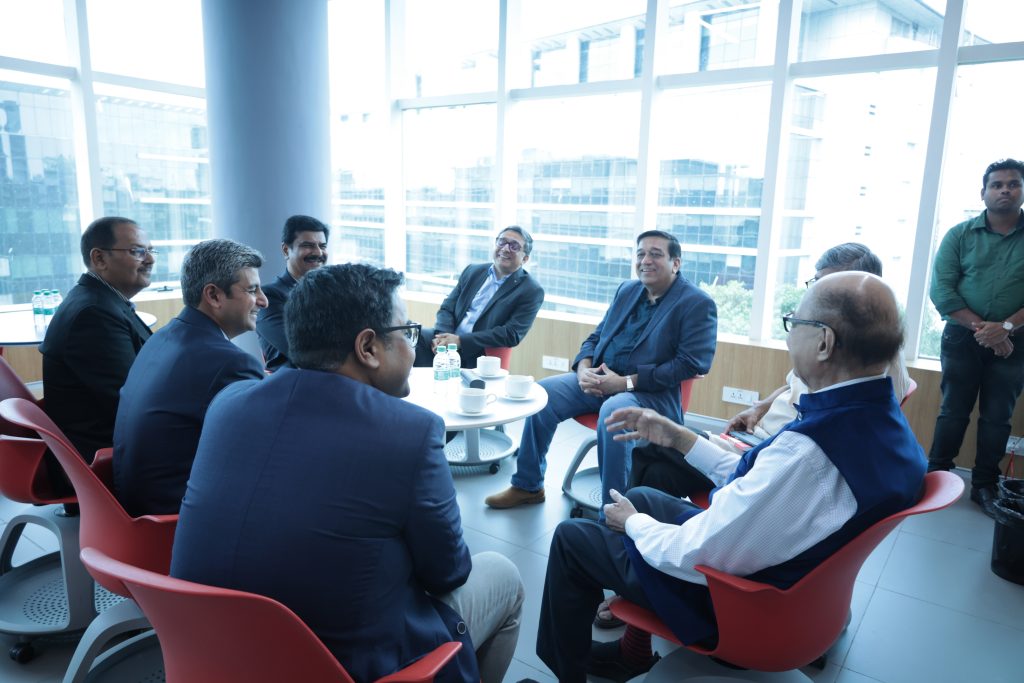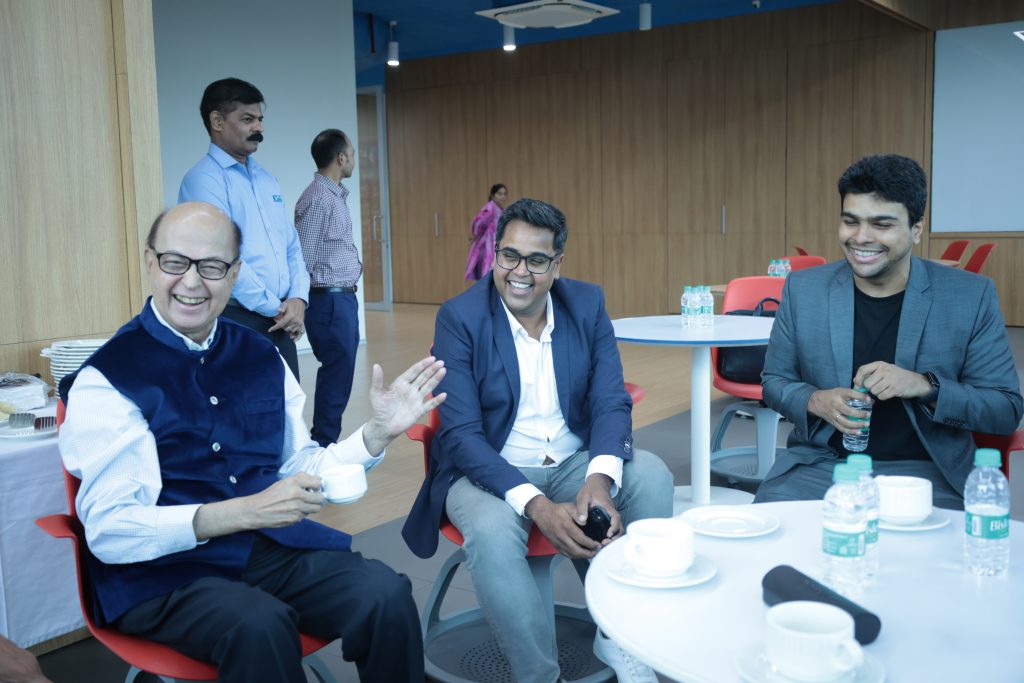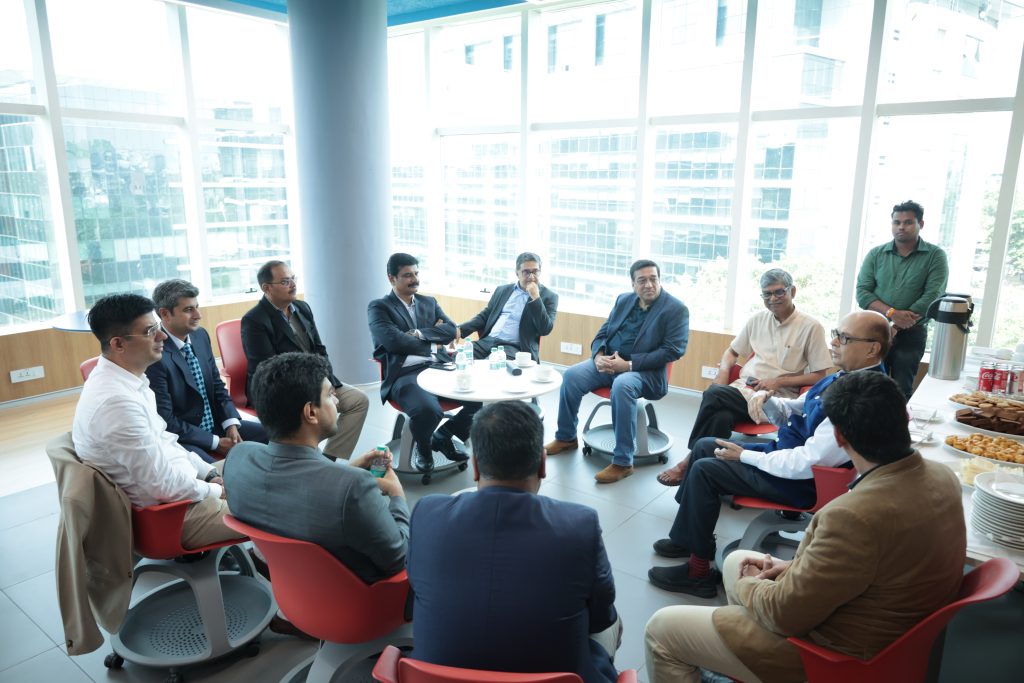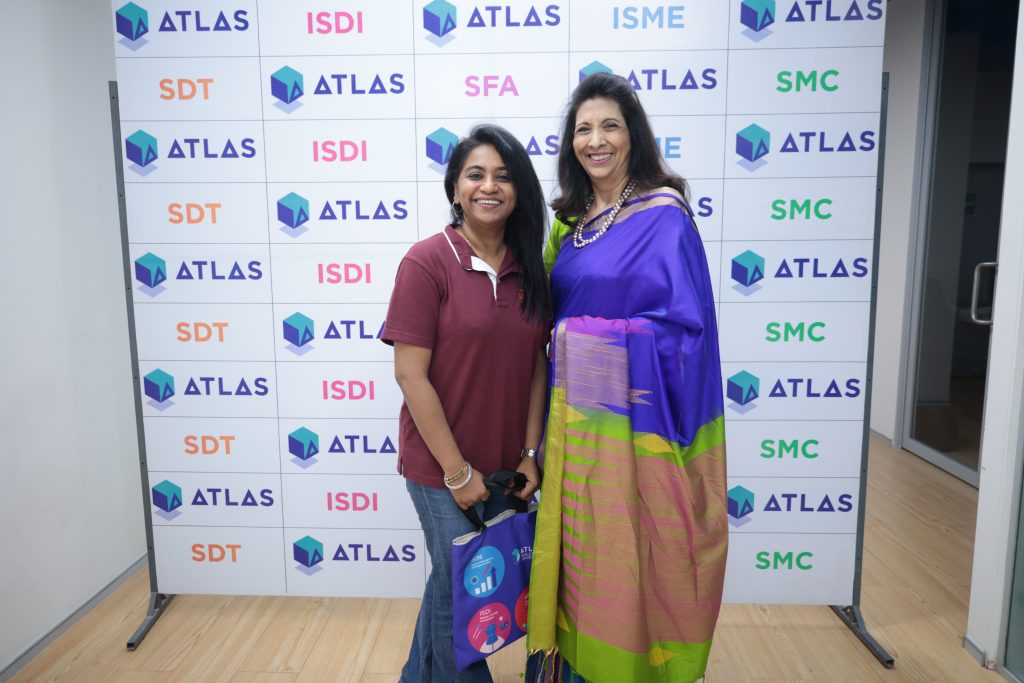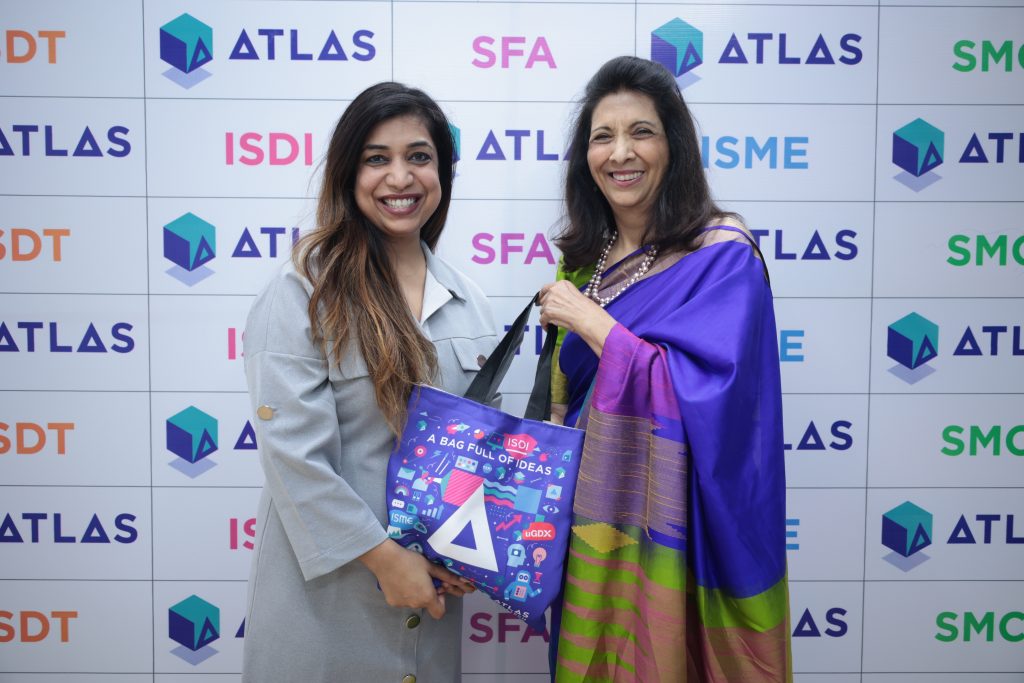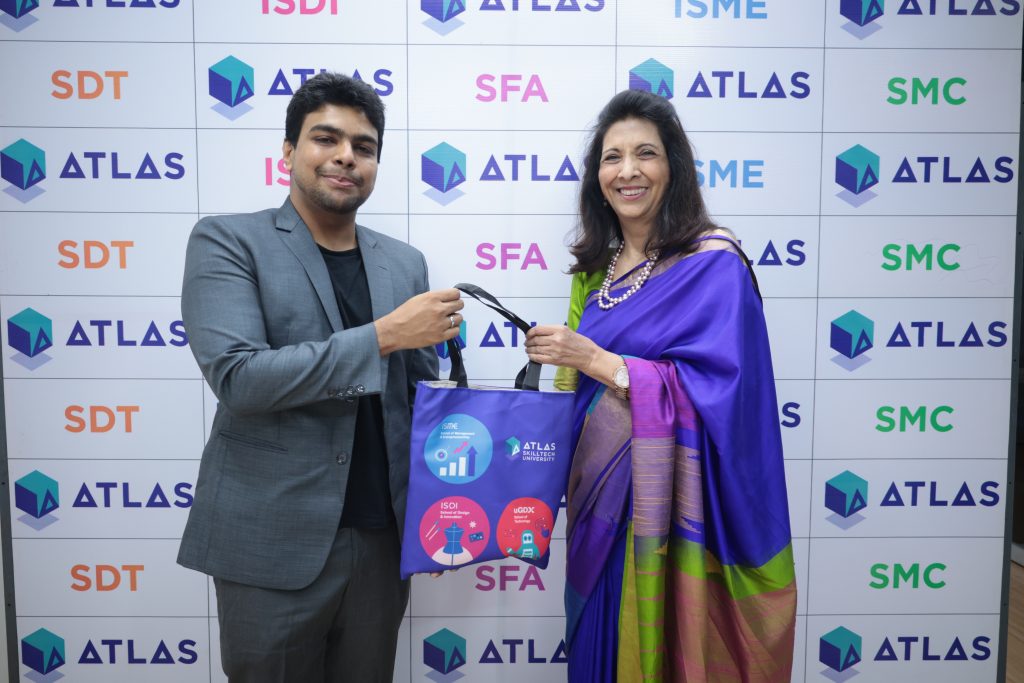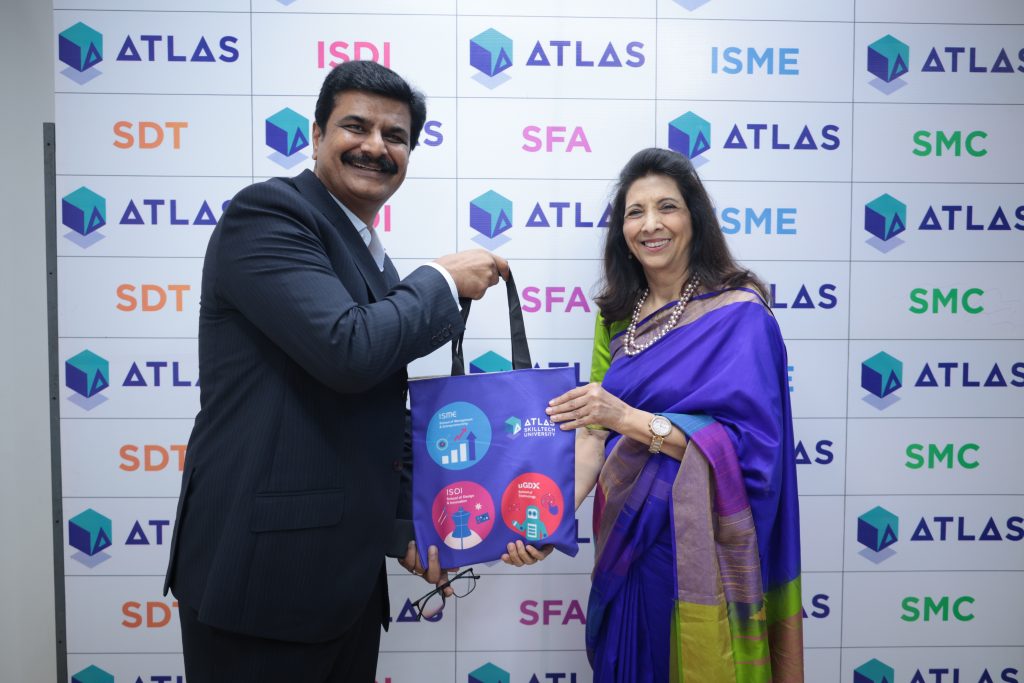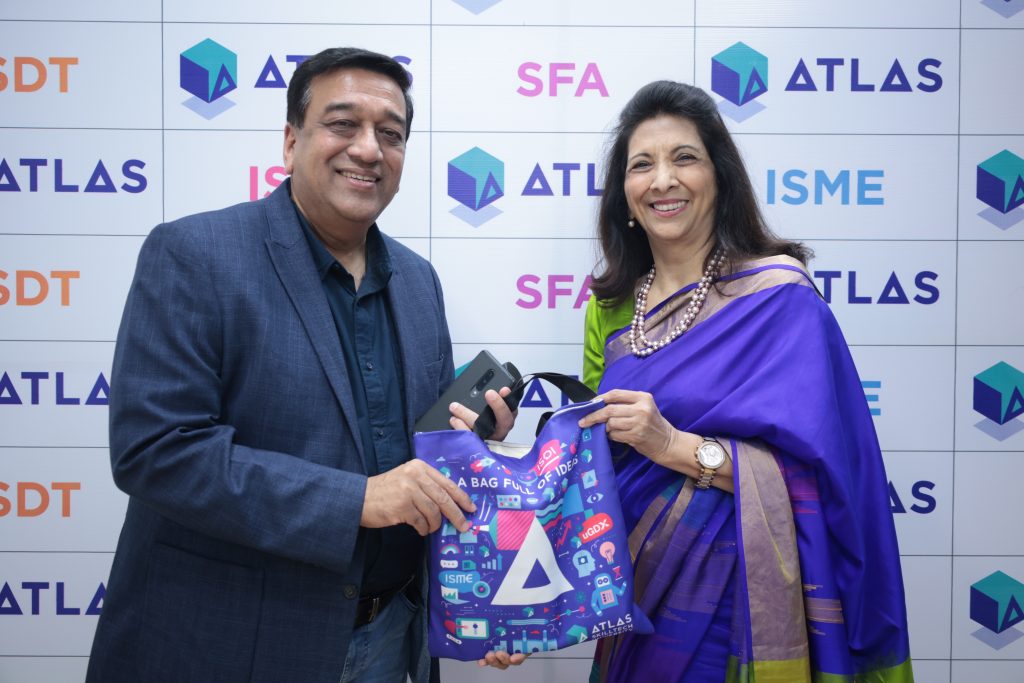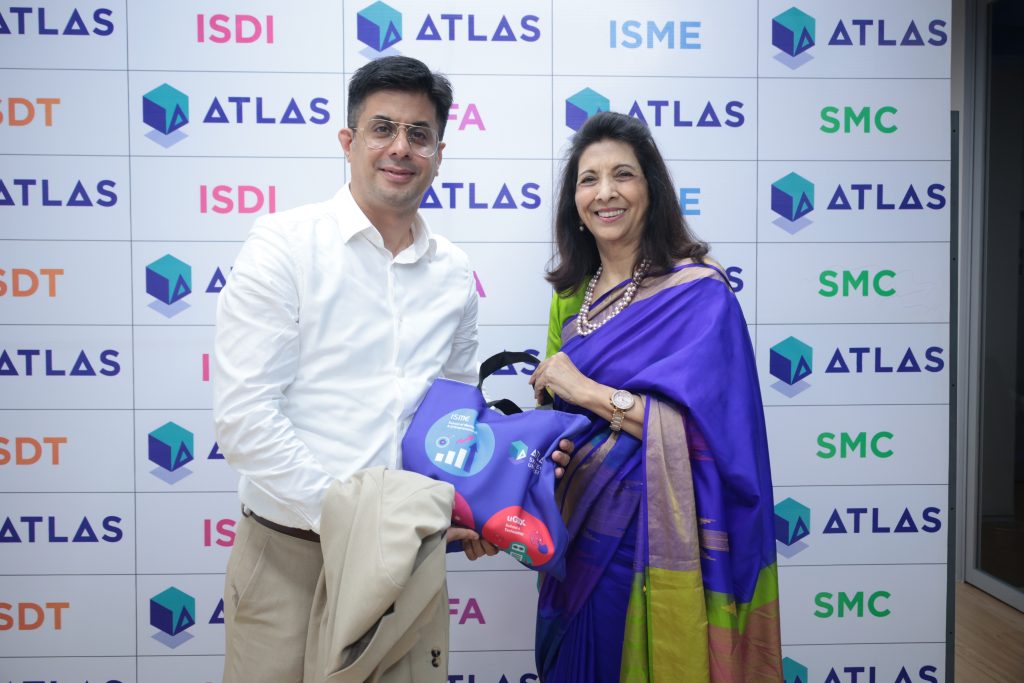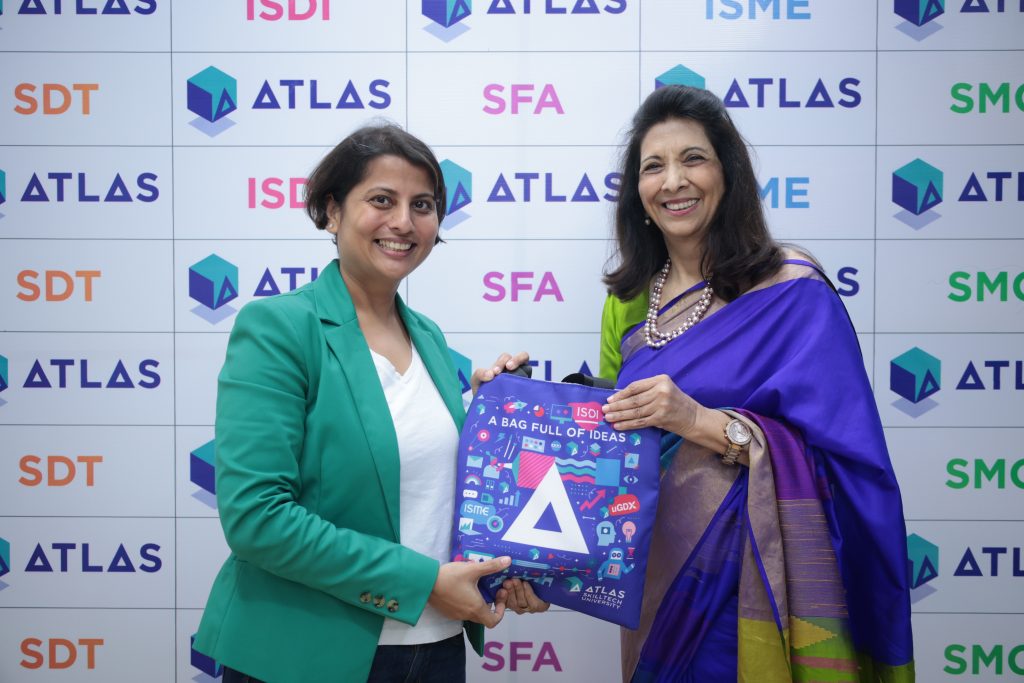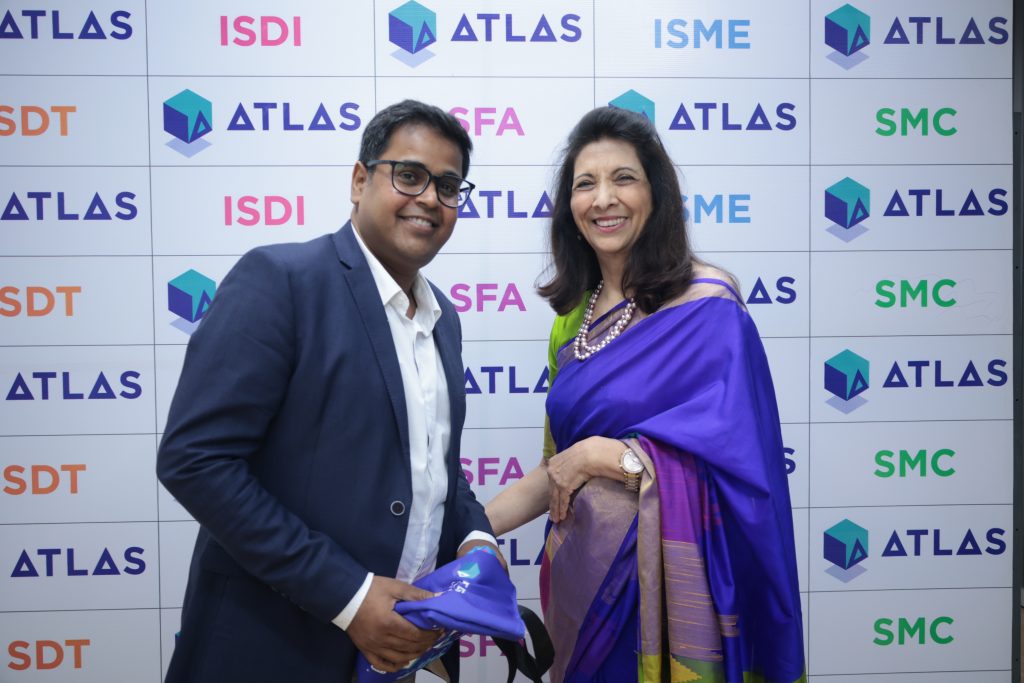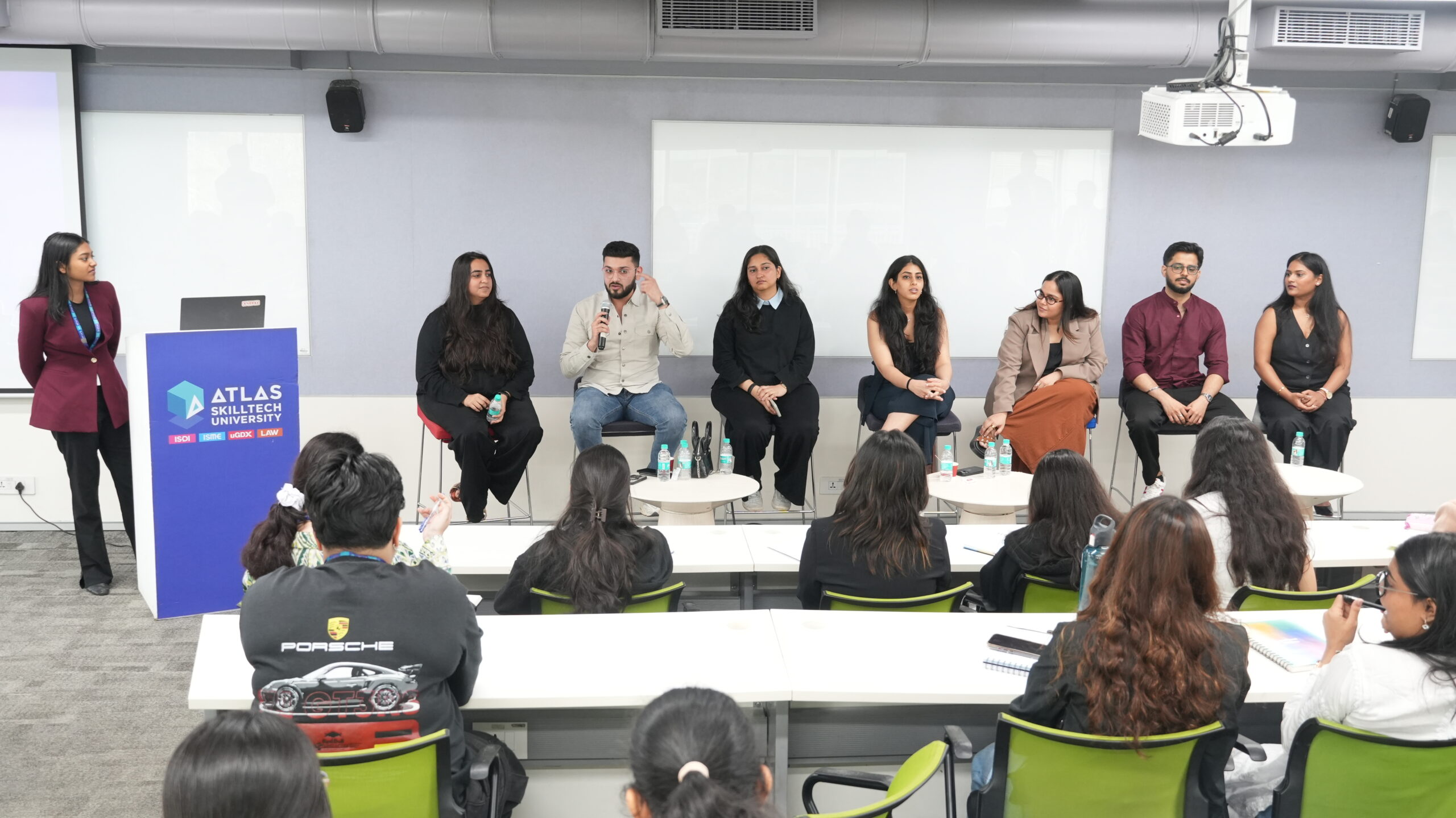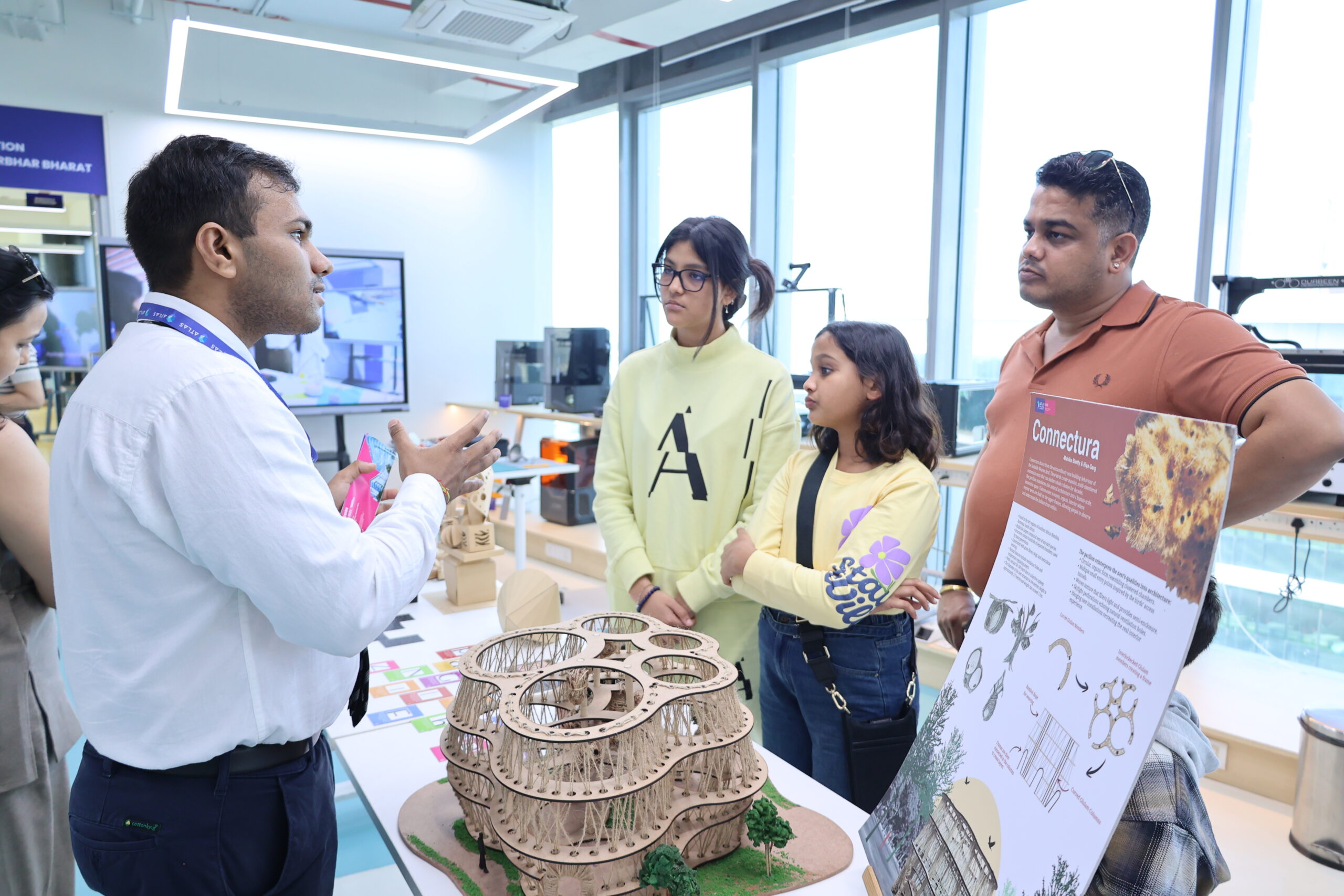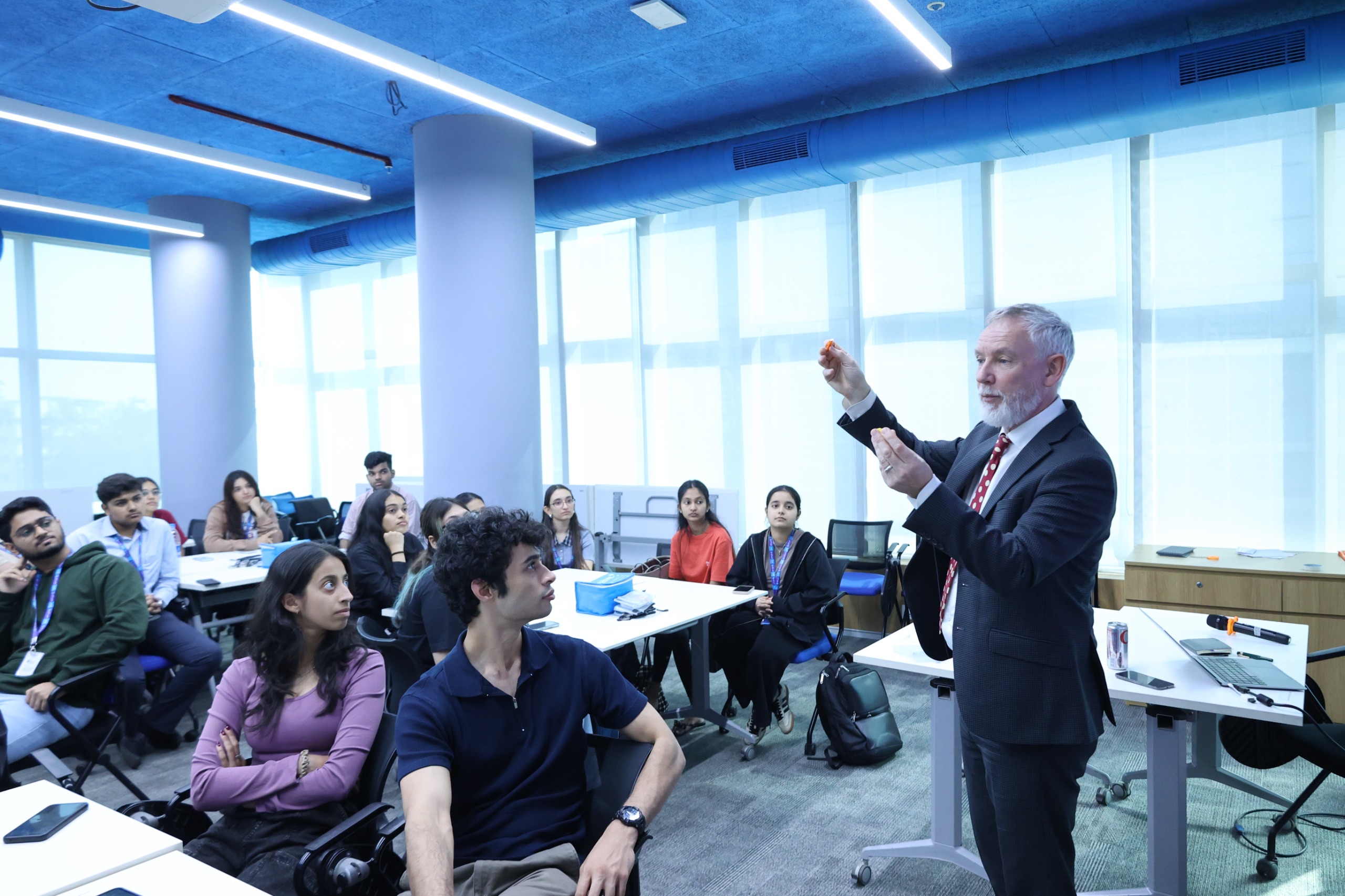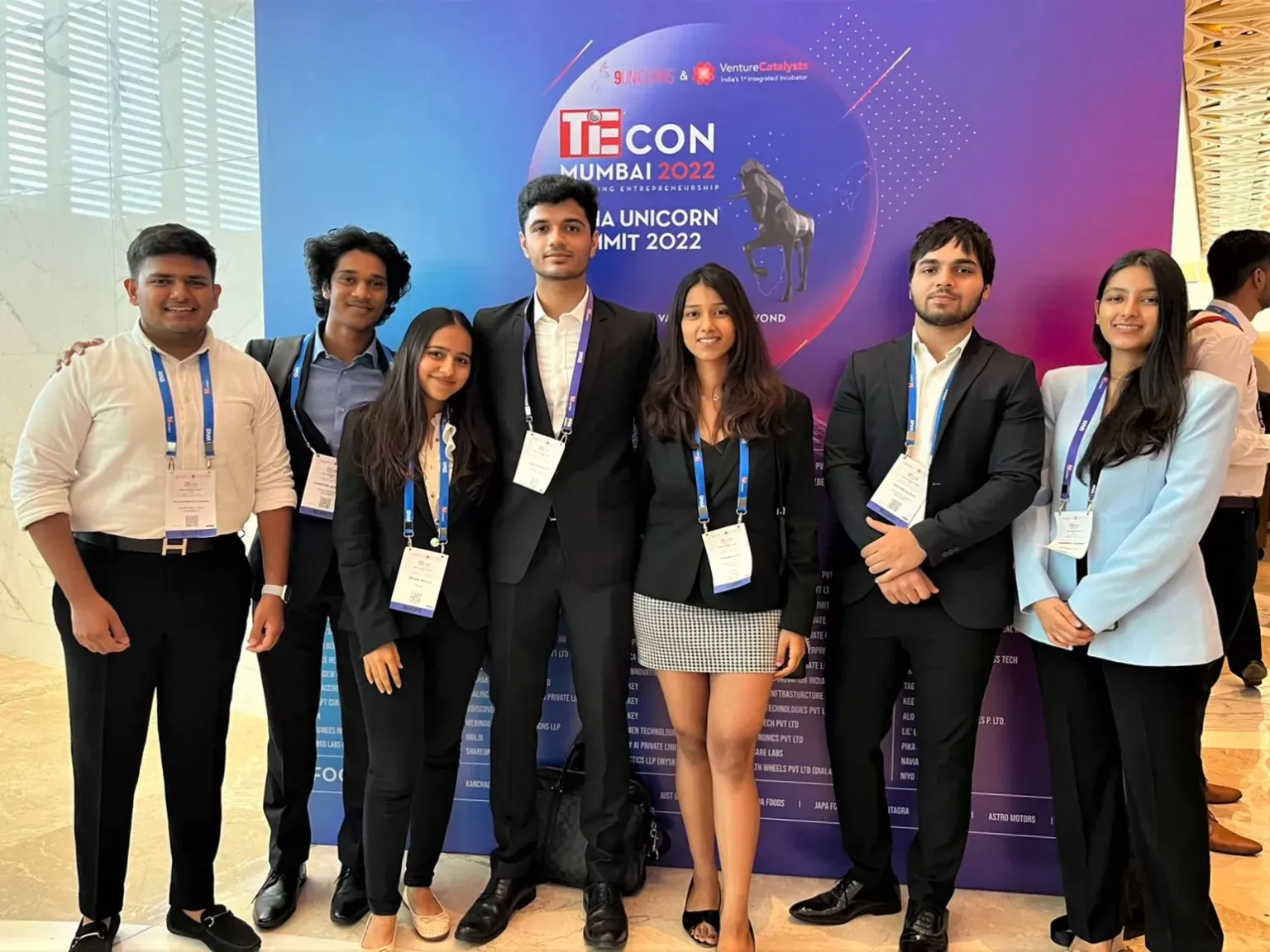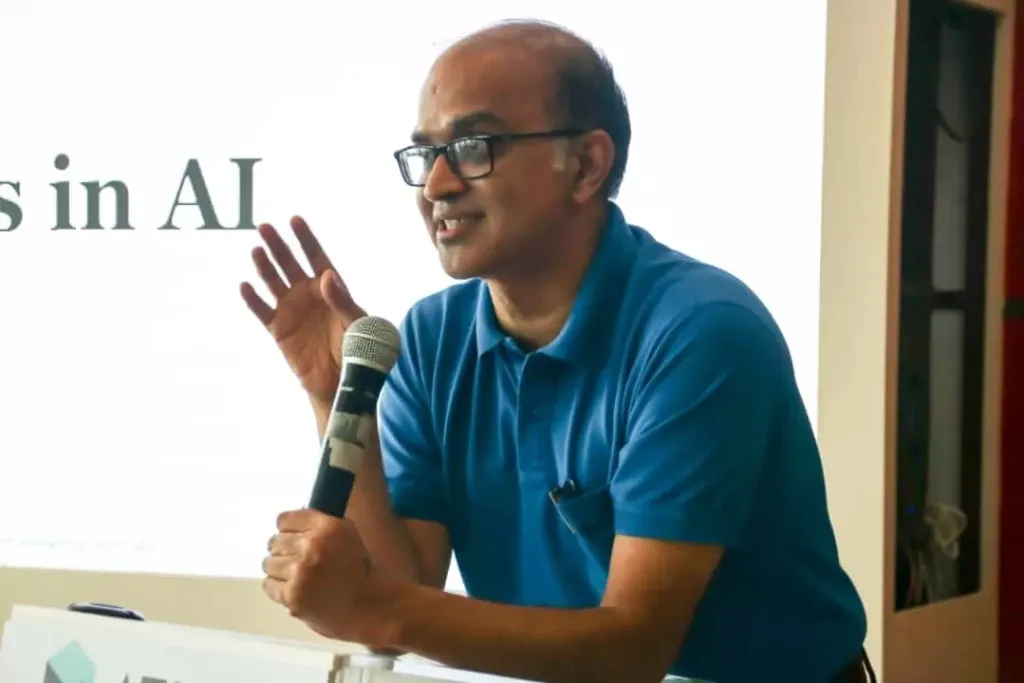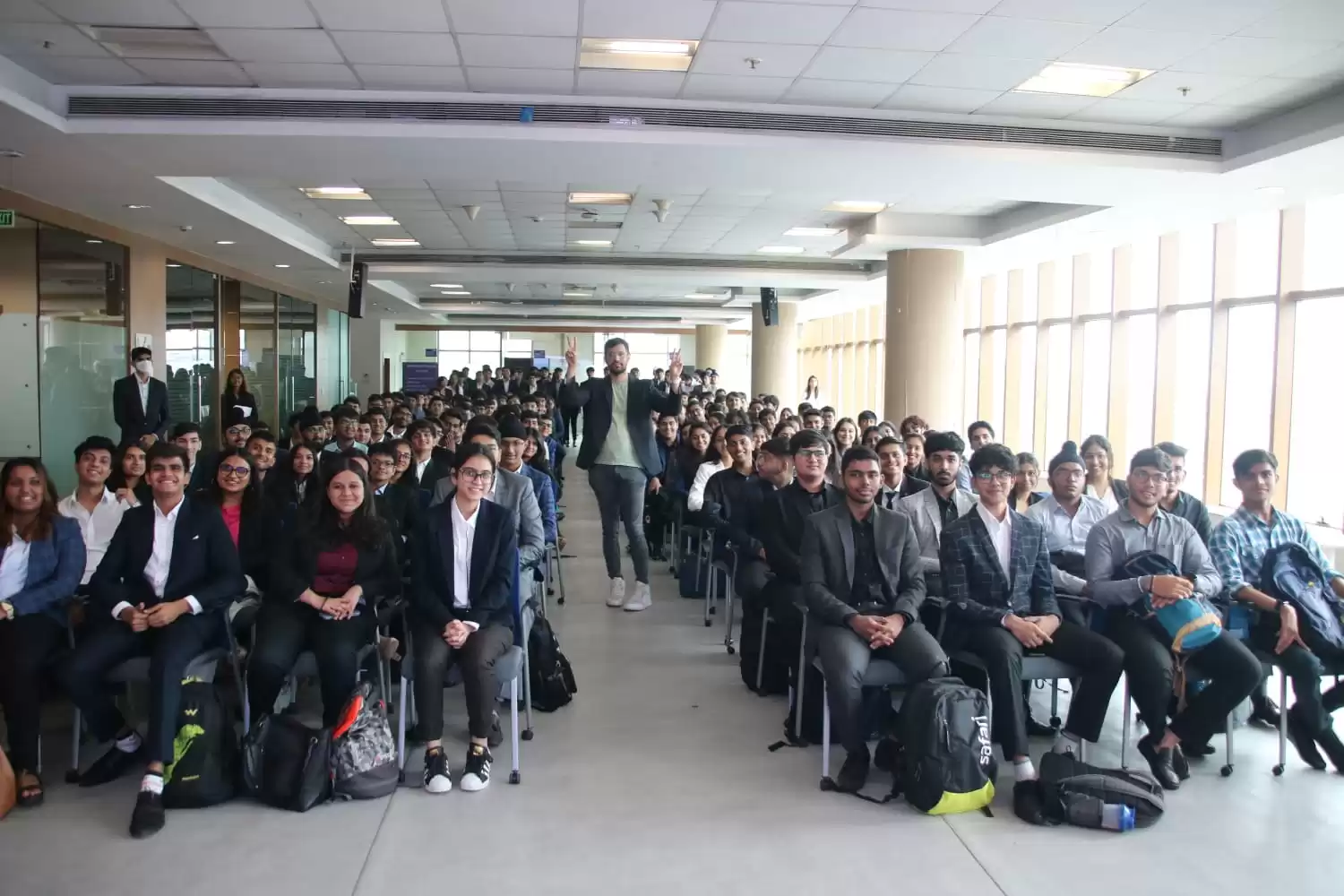Bridging the Chasm: Unveiling Industry Insights and Future Job Prospects at the ATLAS Round Table Conclave

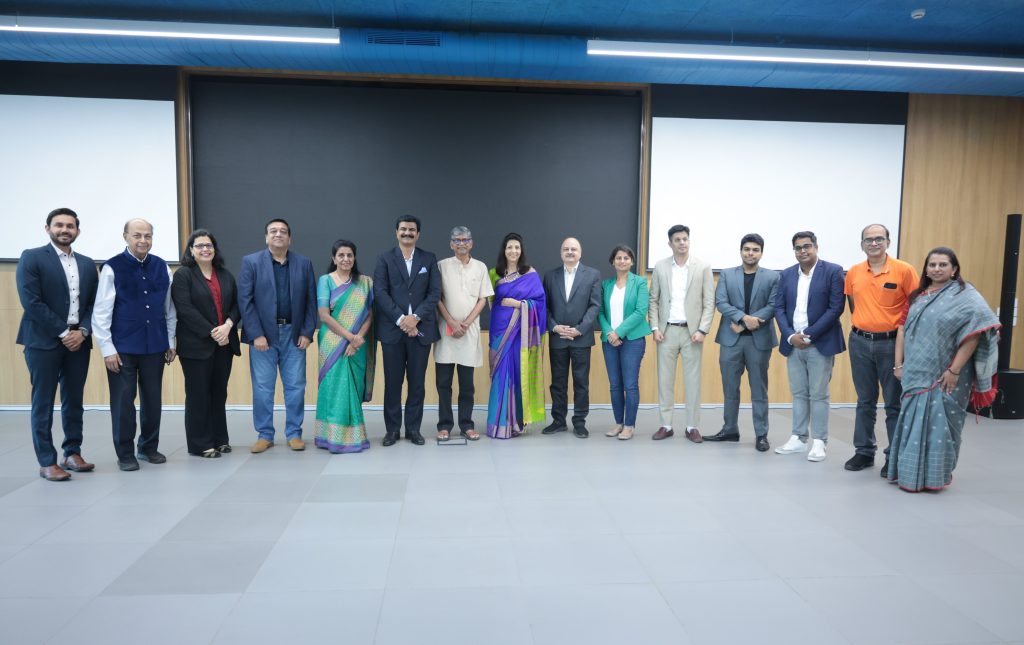
In an extraordinary endeavor to decipher the enigmatic landscape of future job opportunities and unravel the precise qualities that industries seek when recruiting fresh talent, ATLAS SkillTech University orchestrated a remarkable Round Table Conclave (RTC). Distinguished assemblages of industry leaders and seasoned Human Resource professionals, representing a diverse range of sectors, converged upon this prestigious event. Their collective wisdom promised to illuminate the path toward bridging the ever-widening chasm between academia and industry demands.
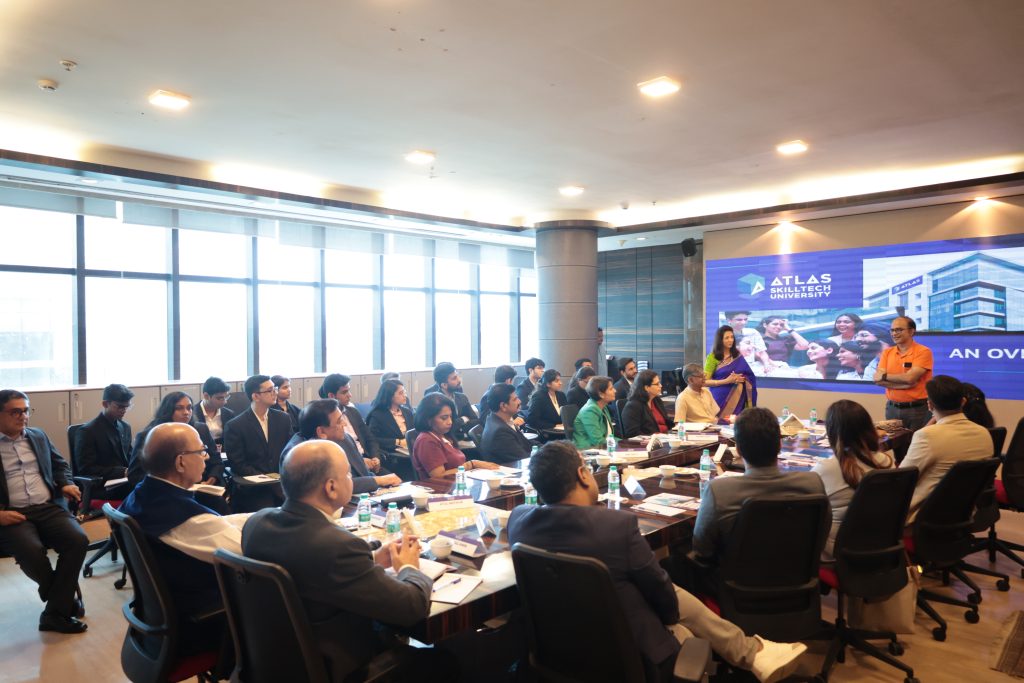
Recognising the crucial symbiosis between industries and the talented individuals they require, the RTC garnered tremendous significance. Its profound insights have the potential to revolutionise the learning ecosystem at ATLAS, enabling the integration of cutting-edge knowledge into the university’s curriculum. Guiding this captivating session was the eminent presence of Mr. Ranjit Shahani, Former Vice-Chairman and Managing Director of Novartis India Ltd., whose moderation skills added an extra dimension of engagement and depth.
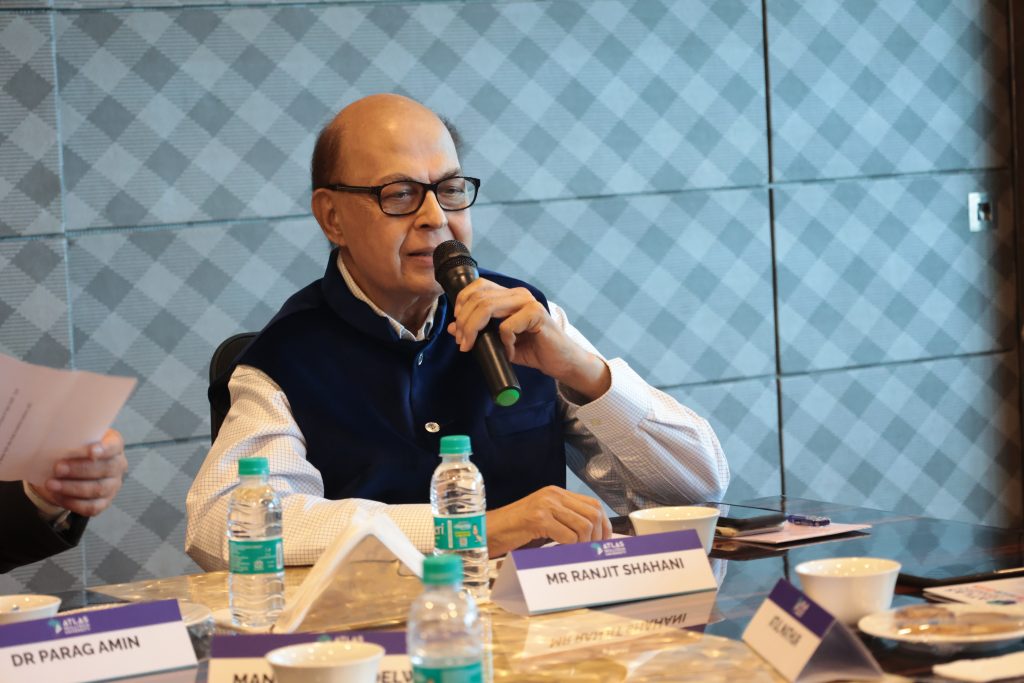
Drawing from a formidable lineup of HR luminaries, the conference boasted an impressive array of professionals who graced the event with their invaluable expertise. Among the esteemed attendees were:
Mr. Atul Mathur – Executive Vice President, Aditya Birla Capital
Ms. Savita Shivsankar – Chief Human Resources Officer, Asian Paints
Mr. Anil Salvi – Group HR Head, JM Financial Ltd.
Ms. Garima Pant – HR Director, MullenLowe Lintas
Mr. Prakash Lakhiani – Head HR, Vice President, Prime Focus Technologies
Ms. Khushboo Tak – Head HR Luxury Retail, Reliance Brand Ltd
Mr. Shreyas Haridas – HRBP, SAMEA Spotify
Mr. Manish Khandelwal – Head HR & Talent Acquisition, VMLY&R Network India
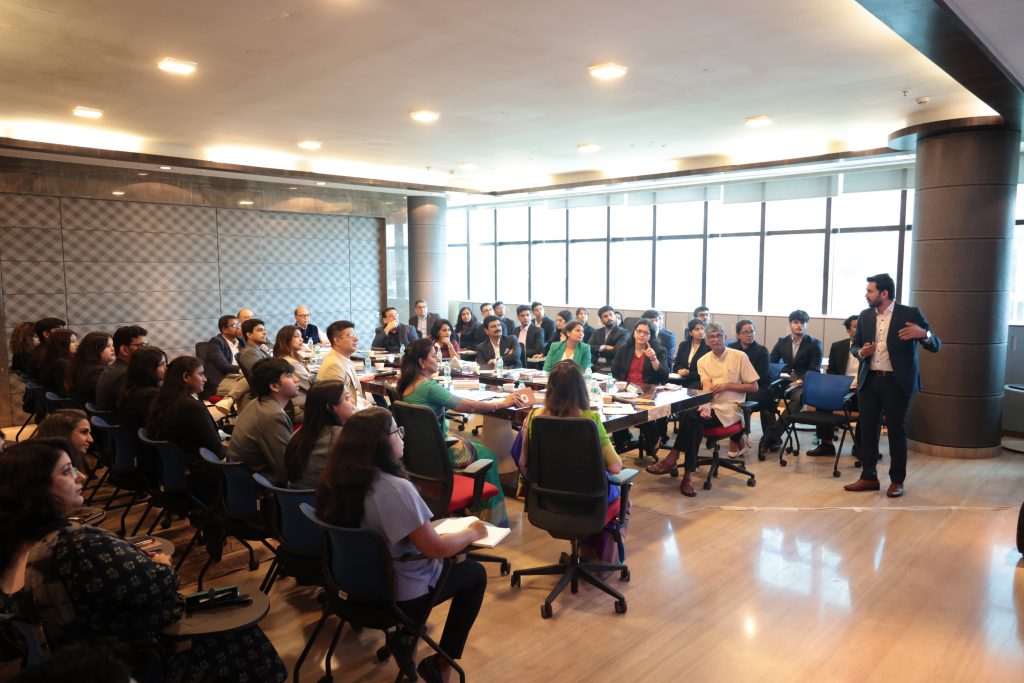
The event witnessed an enthusiastic attendance of first-year MBA students hailing from various corners of the country, accompanied by esteemed faculty members of ATLAS SkillTech University. Together, they formed a collective force poised to absorb the invaluable industry insights shared during this momentous occasion. Dr. Indu Shahani, Founding President & Chancellor and Dr. Rajan Welukar, Vice Chancellor of ATLAS SkillTech University, also graced the occasion, further enriching the atmosphere with their esteemed presence.
Transformative revelations
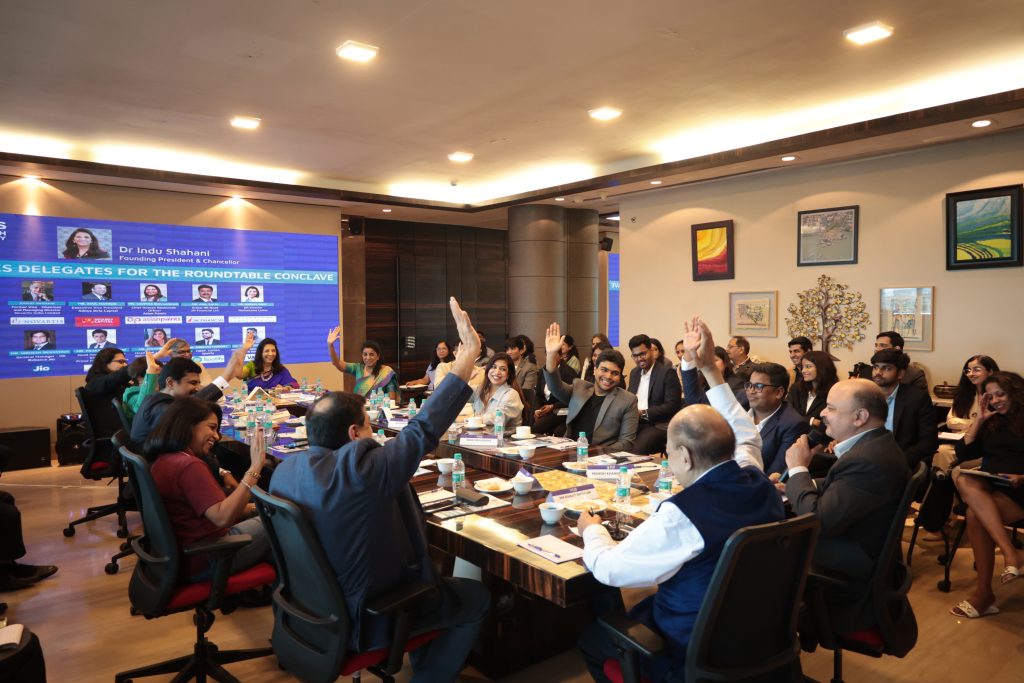
Prepare yourself to be astounded by the wealth of knowledge divulged during the RTC. With this complete download of the event’s transformative revelations, you can embark on a journey toward comprehending the dynamic relationship between academia and industry, poised to shape the future of employment.
Q: You have worked with businesses as well as HR functions across diverse industries like insurance, telecommunications, and BPO. Moving forward, and in the life of a change scenario, what challenges do you foresee in setting up and managing large teams?
Atul Mathur: Today, everything is volatile. Especially in the last 3-4 years, a lot of things have changed in the way we work. Nobody could have imagined that salespeople would be sitting at home during virtual calls. But there needs to be a mindset shift because many companies expect their employees to come to the office while a lot of employees want to work from home. So, finding a balance becomes crucial. From a working environment perspective, the challenge lies in managing this new dynamic.
Additionally, we have the advent of web workforce, individuals who work with different organisations simultaneously. Managing them presents an entirely different set of challenges. If you are working with them, they may be working with 3-4 different organisations, making it challenging to ensure timely deliverables.
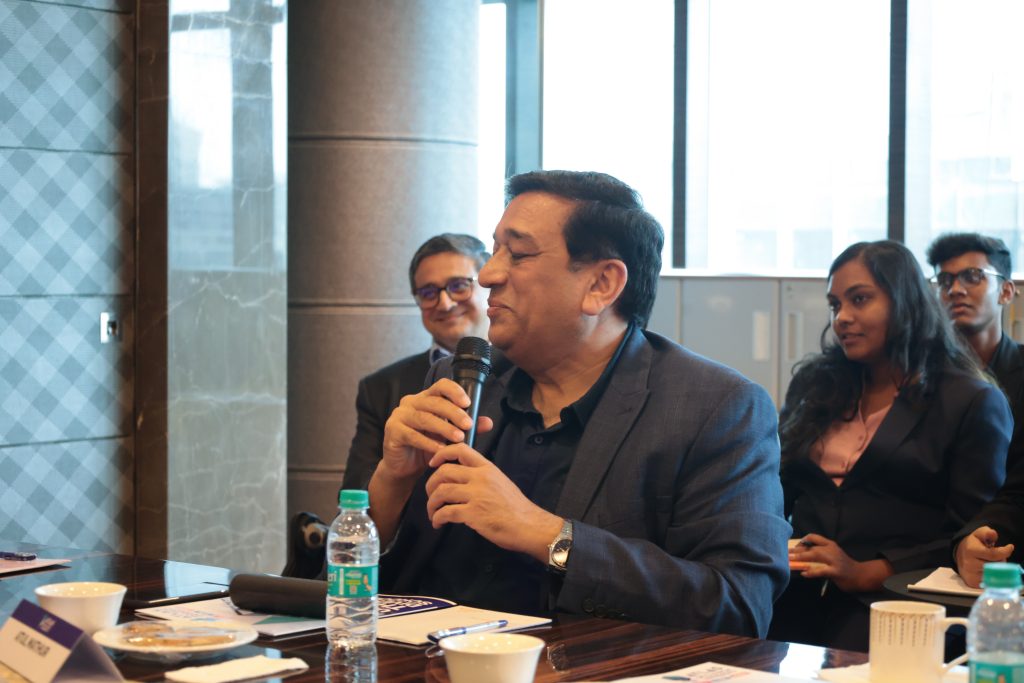
Another challenge is the integration of technology into every aspect of business, regardless of the function. Many individuals who are resistant to technology still exist in the workforce. Thus, it becomes essential to find the right people who can embrace and leverage technology to propel the company forward. In our organisation, we have initiated capability development from a future tech perspective to address this need.
Finding the right balance between integrated technology and the specific requirements of the work at hand is crucial. Technology should be used with the right intention. To me, the world of technology is not an “either-or” situation but rather an “and” situation where people and technology coexist. As leaders, we must be responsible and have the vision and maturity to understand when and where to deploy technology. It’s important to note that technology can also be invasive. Many companies are using technology to project how long an employee might stay with the company to take proactive steps for retention. However, this approach requires surveillance through technology, which raises concerns about privacy. Organisations that seek permission from their employees for such practices are taking the right steps. Therefore, when it comes to technology, we need to become more responsible.
The age-old trick of keeping everyone together, helping them see the bigger picture, and taking responsibility remains important. For me, “human” always comes first, and “resource” comes later.
Q: You are one of the rare examples of women leading the HR function of a paint company globally. How are HR practices followed in India different from those followed globally? How do you ensure parity?
Savita Shivsankar: Thank you for highlighting the unique position I hold. In terms of HR practices, we are quite similar to any top 10 FMCG organisation globally. However, there are some nuances that exist when it comes to the ground-level execution. The quality of talent and the people we work with are similar to those found in any other FMCG company in the country.
Being in the paint industry, we have witnessed significant growth and it presents a great sector to work in. With the entry of new organisations, the opportunities are vast. As a market leader, we have the responsibility to ensure a sustainable pipeline to support this tremendous growth.
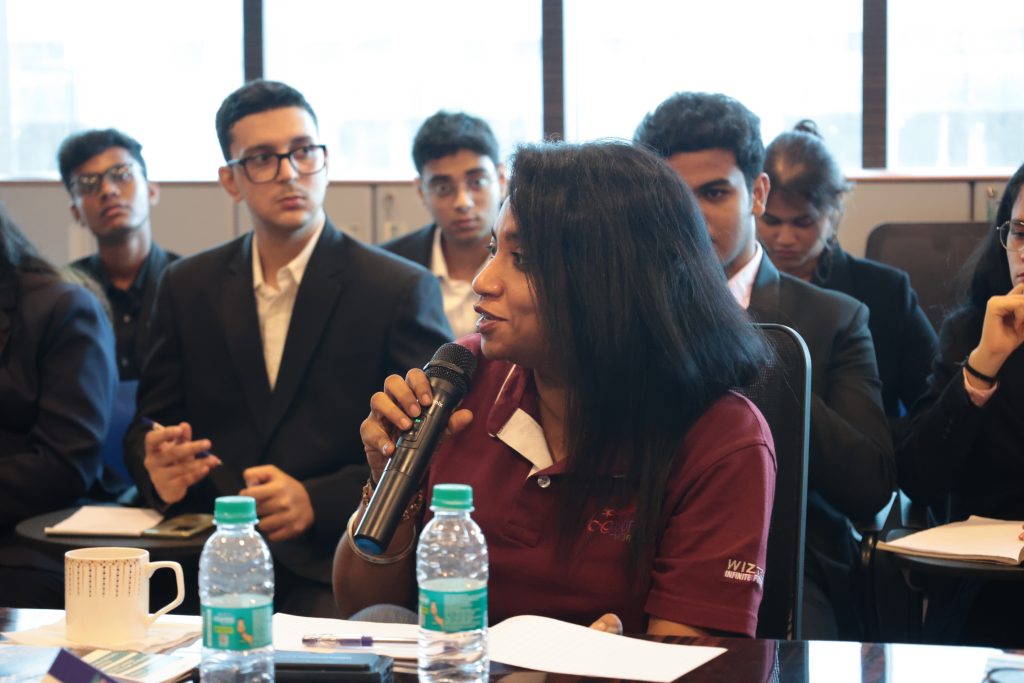
Succession planning is another critical aspect, particularly for organisations like ours that are experiencing rapid growth. Building strong leaders quickly becomes essential.
Now, when we consider a global organisation, we strive to create a culture where individuals feel a sense of belonging to “Asian Paints,” regardless of their location, be it the Middle East, Africa, India, or the Fiji Islands. We aim to build a consistent cultural framework across our organisation, ensuring that our core values remain intact. However, we also embrace and appreciate the unique characteristics and individuality of each market. Striking the right balance between global practices and local adaptations is crucial to leverage the competitive edge specific to each market.
To achieve this, a significant portion of my HR teams consists of local talent. This provides us with valuable insights and experiences. It’s a constant endeavor to strike a balance between global initiatives and what is universally applicable to all of us, while also respecting the individuality of each market.
Q: In an increasingly competitive market, how does the organisation differentiate itself as an employer of choice? What unique employee talent proposition does your company offer?
Anil Salvi: Before I answer your question, I would like to build upon Atul’s point regarding working from home. It’s important to acknowledge that certain businesses require physical presence when clients are physically present. In such cases, being physically available becomes crucial, regardless of the workspace limitations.
Now, speaking about our organisation, I represent J M Financial, one of the oldest financial services companies in our country, celebrating its 50th anniversary this year. The fact that we have survived and remained relevant for five decades is a testament to our success. However, the true measure of our success lies in the managing directors who sit on the board of our listed company. These individuals are employees who joined our firm 30 years ago. This highlights the strength of our organisation’s value system.
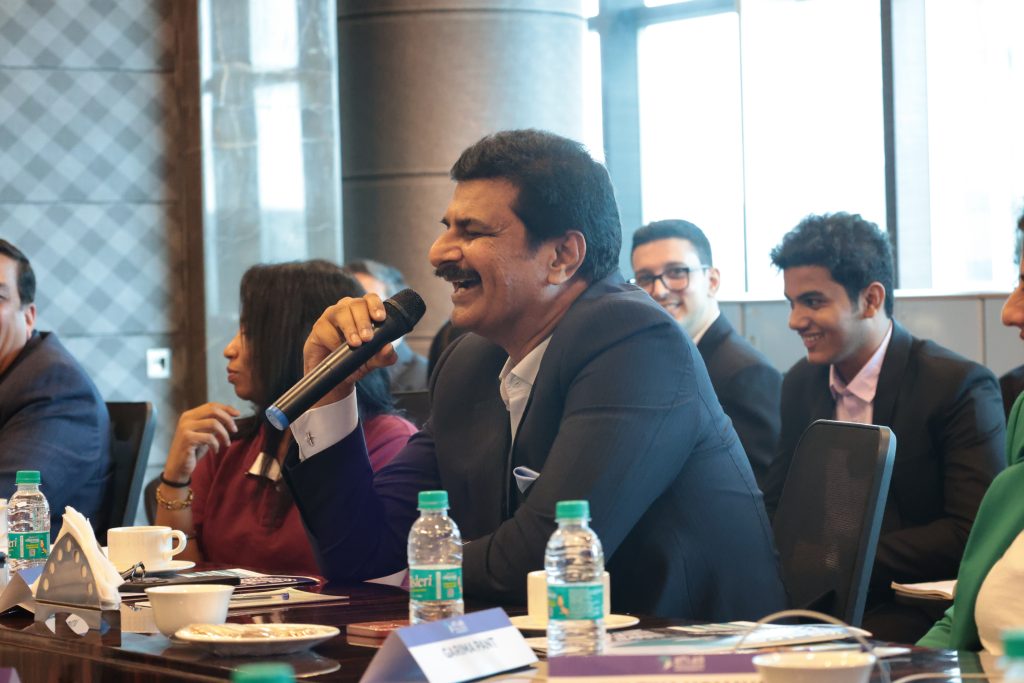
We are known for our stability and reliability. As a global investment bank in the country, we offer students a promising future when they consider joining our firm. We prioritise trust in our people and take care of them. We are not a “hire and fire” company, emphasising our commitment to long-term relationships.
For new talent, it’s important to have patience and understand that there will be challenging days, but it’s crucial to navigate through them and persevere.
Q: You have been a staunch supporter of inclusivity. What are some key driving points that are crucial both now and in the future? Could you share your experience in promoting inclusivity within your company and how it compares to efforts elsewhere?
Garima Pant: Inclusivity has been a prominent topic for quite some time, and now it is evolving towards sustainability, which is the new focus. Many organisations are actively engaging in conversations around this subject. When we address gender issues, we already address 50% of the workforce. However, it’s important to recognise that inclusivity extends beyond gender and encompasses disabilities, sexual orientations and more. Personally, my focus has primarily been on gender and supporting women during critical periods when they may face the risk of dropping off.
In my approach, I have utilised the MAP framework, which stands for Measurement, Awareness and Policies. Measurement helps us understand the current state of inclusivity, awareness creates a shared understanding and policies play a vital role in implementing and driving change.
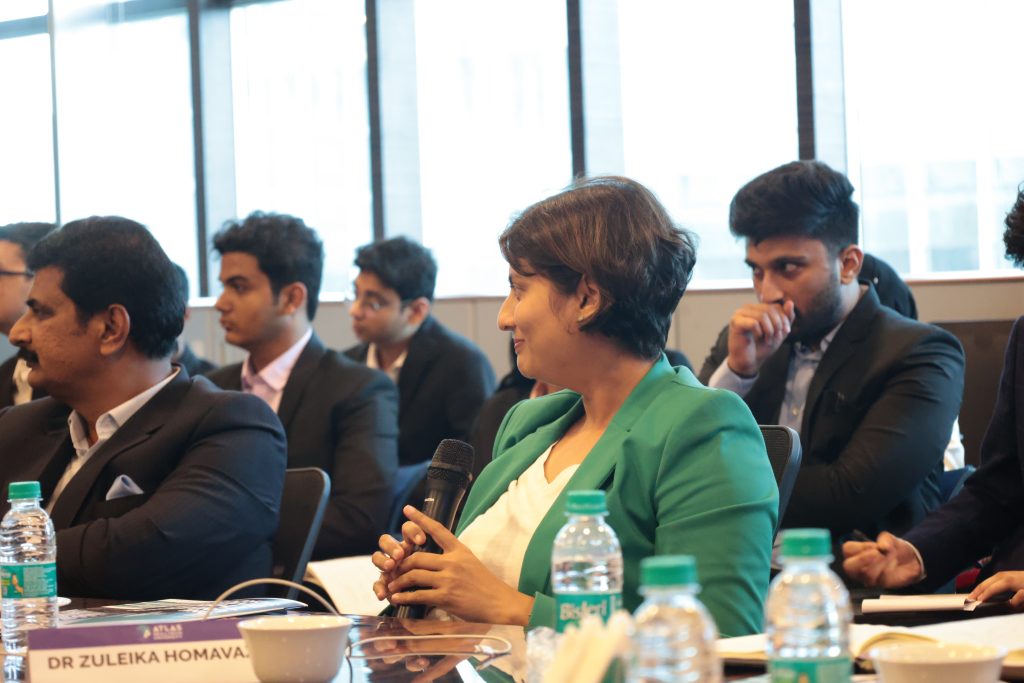
While many organisations discuss inclusivity, few actually take action to address grassroots-level problems. For example, if we ensure that disabled children have access to education, it increases the likelihood of employing individuals with disabilities in our organisations. Similarly, sexual orientation is an important issue, but conversations within most organisations have not yet led to tangible changes. It’s crucial to create a culture where individuals feel comfortable discussing these matters. One way to gauge progress is by observing the number of declared partners for whom medical insurance is extended. In my previous organization, we implemented this policy six years ago, and to my surprise, not a single person declared a partner. This indicates that culturally, there may still be barriers preventing people from openly discussing such topics. It’s a long journey and it requires sustained effort. Genuine intentions and well-crafted policies can bring about meaningful changes.
It’s worth noting that promoting inclusivity is an ongoing process and each organisation may have its unique approach and challenges.
Q: How do advances in technology such as AI, ChatGPT and ML impact the future nature of jobs? Do you anticipate technology replacing human beings?
Prakash Lakhiani: It’s crucial to stay focused on our goals. While technology will undoubtedly play a significant role in the future, I firmly believe that it will not replace human beings. Instead, technology will become increasingly important and pervasive. To thrive in this evolving landscape, it is essential for us to familiarise ourselves with and adapt to these advancing technologies. We must proactively educate ourselves and stay informed about the new technologies shaping our industries.
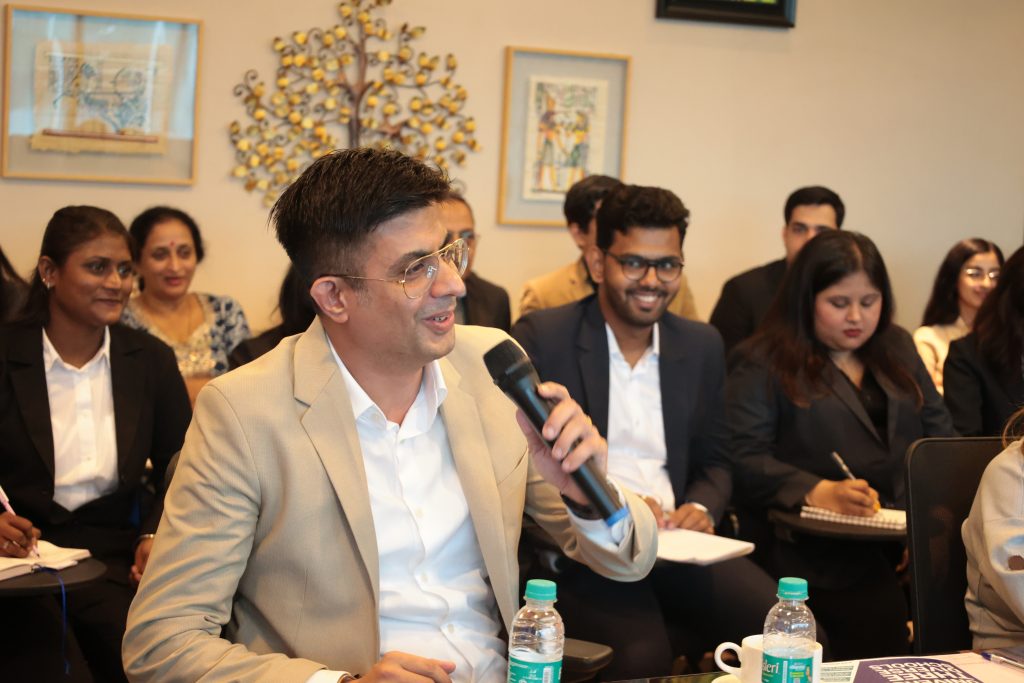
Q: What challenges do the new-age HR managers face considering the evolving future jobs? Additionally, what strategies or initiatives have you implemented to prioritise employees’ mental health and well-being?
Khushboo Tak: In terms of challenges, new-age HR managers need to focus on constant culture-building activities within their organisations. It is crucial to define and disseminate the desired culture to new hires from the moment they come on board. HR managers must continuously set expectations, emphasising the importance of getting involved, understanding the business and being willing to take on various tasks.
Furthermore, organisations place significant value on their invincible strengths, such as employee practices and engagement. These intangible factors often hold more weight than salary or other tangible benefits in keeping employees motivated and committed.
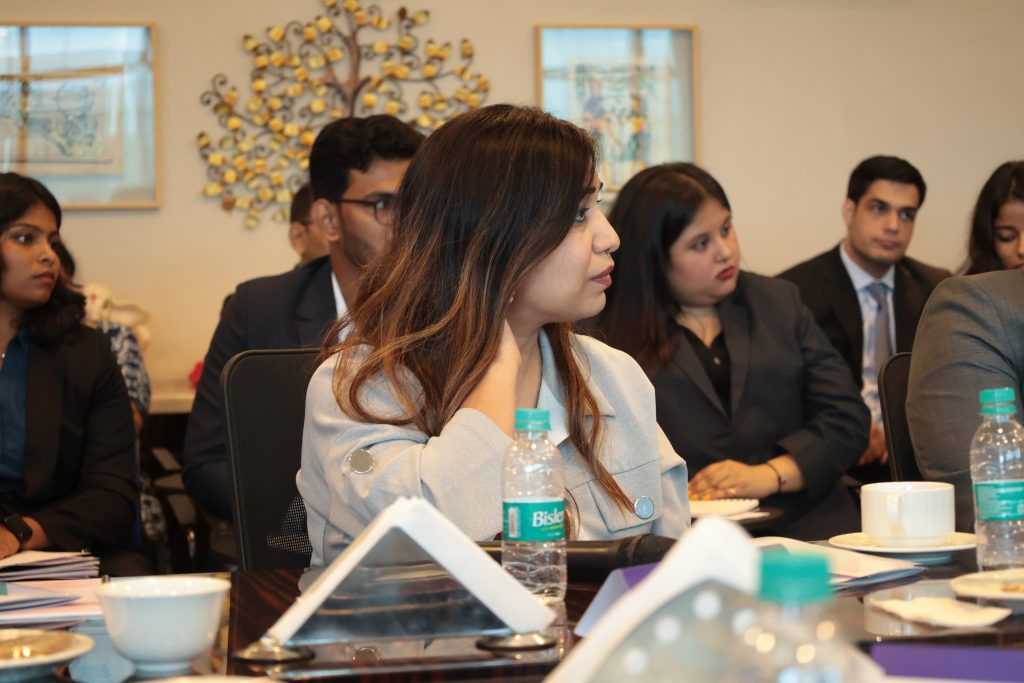
Regarding mental health, we have implemented key initiatives related to medical wellness. We have partnered with different agencies to ensure a focus on employee well-being. It is important for individuals to feel safe and supported, so we have established internal committees that employees can reach out to for assistance. These measures help create a safe space where employees can connect with the right people to address their mental health concerns.
Q: What role does HR play in driving change and supporting the growth and development of employees at Spotify?
Shreyas Haridas: At Spotify, the role of HR is dynamic and evolves rapidly due to the nature of our organisation. While we are a structurally young company, our user base includes individuals from various age groups. Our marketing may target younger generations, but we offer a comprehensive product for all users. As we enter new markets regularly, change becomes constant, bringing forth new challenges that require swift action to ensure improved products, offerings and customer experiences.
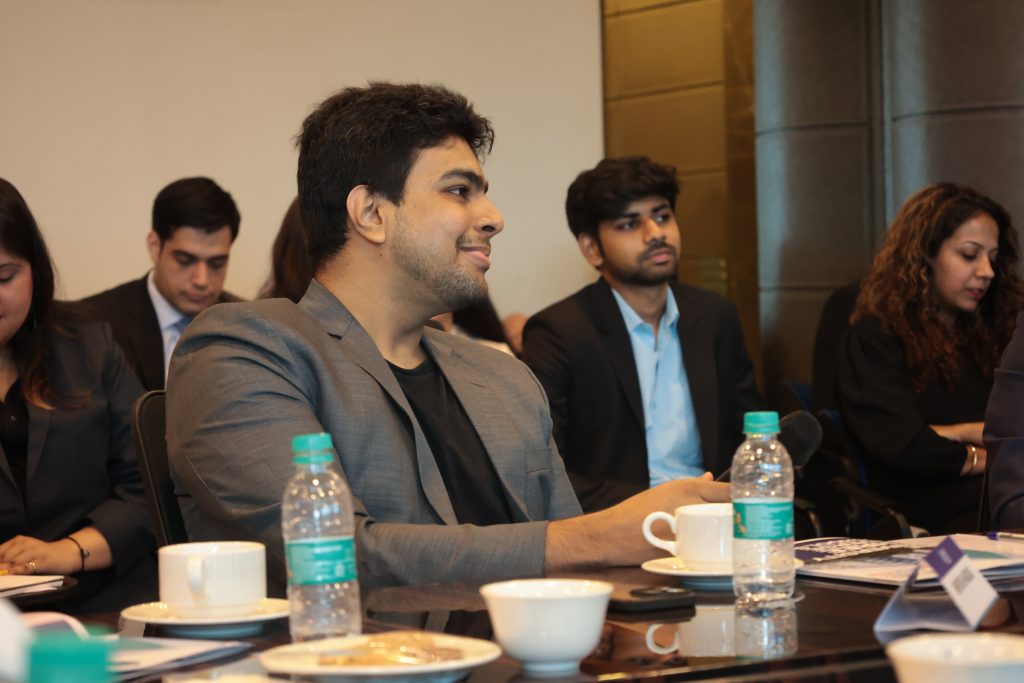
In this context, change management and adaptability to an ever-changing industry culture are essential. We seek individuals who are comfortable with the absence of rigid structures or traditional ways of working because that aligns with the nature of our industry. For those who embrace this mindset, we provide ample support through training sessions, growth opportunities and development initiatives.
Interestingly, Spotify has taken a unique approach to development. We do not have defined levels, ladders or specific career tracks as seen in software or other industries. Instead, we encourage employees to think about where they can add value within Spotify. Managers are encouraged to view all employees as Spotify’s resources rather than personal resources. This perspective allows for flexibility and movement between roles when potential value is identified. This approach has been instrumental in retaining many talented individuals within our organisation. While it may be a change for newcomers, they often recognize the merit in this philosophy over time.
Q: What skills should the budding managers be taught to prepare them for the future? How can students effectively navigate and negotiate job offers and contracts?
Manish Khandelwal: When it comes to preparing budding managers for the future, there are two aspects to consider. Firstly, developing functional expertise is crucial. Many individuals perceive client servicing roles as mere coordination, but it extends beyond that. Budding managers should be equipped with the ability to understand how their work ties back to the overall business objectives. Addressing this gap in understanding can be done through educational institutions providing relevant training and knowledge.
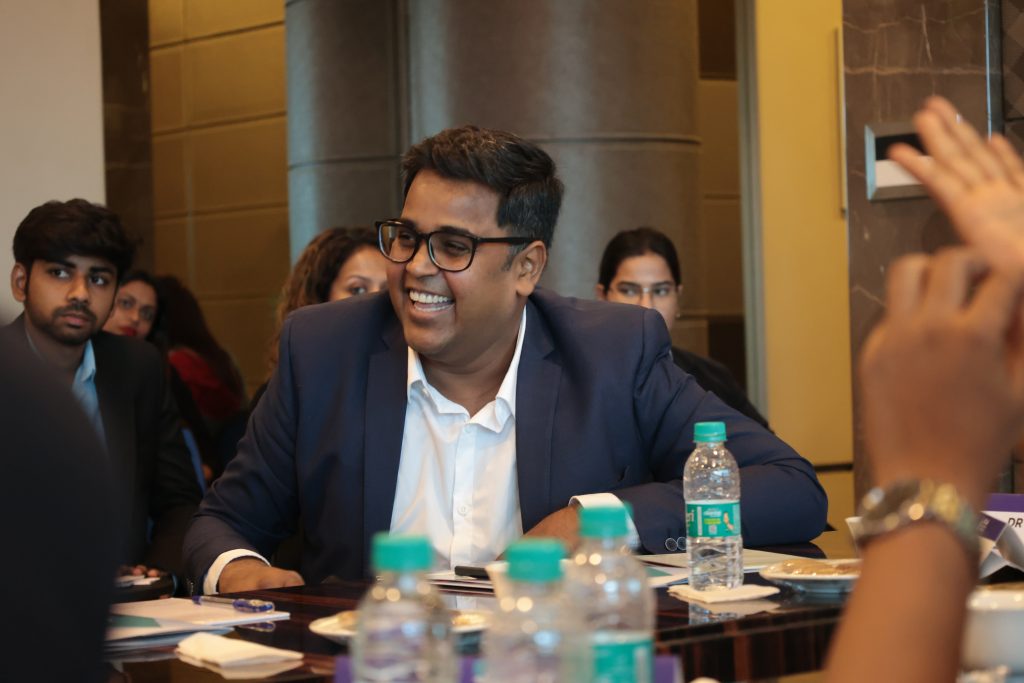
For students entering the workforce, it is important to choose the right organisation that aligns with their desired type of work. In today’s digital age, compensation benchmarks are readily available online. Students should review these benchmarks and, with the guidance of their mentors, determine their own level and corresponding compensation expectations. When it comes to contracts, most organisations follow standard practices. While certain clauses may appear bothersome, if the company itself is a good fit and aligns with your goals, overlooking minor concerns in the contract is acceptable. Ultimately, the organisation’s values and culture hold more importance than contractual clauses.
Responses to the rapid fire round questions
Q: What one word would you use to describe the future of jobs for the current set of graduates?
- Entrepreneur
- Unexpected
- Dynamic
- Always changing
- Freedom
- Tech driven
- Hustler
- Collaboration
Q: Apart from the academic knowledge and technology that we already teach in ATLAS, what would you consider to be the most crucial skill for us to prioritise in preparing our students for the industry?
- Resilience
- Ability to unlearn
- Courtesy
- Ingenious Thinking
- Right attitude
- Agility
- Embracing change
- Empathy
Questions from students
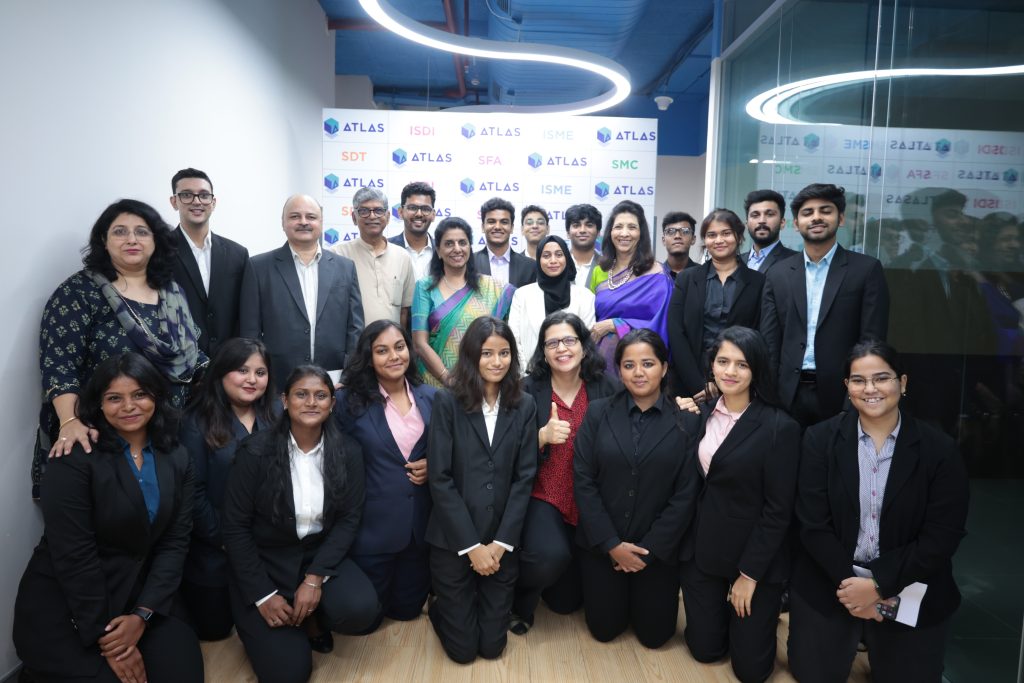
Jason Pinto, FY MBA
Q: How can one know when to switch careers from an organisation for better career growth
Savita: Different things work for different people, but here’s what works for me. Two critical factors guide my decision-making process. Firstly, I switch careers when I no longer feel excited and motivated about going to work. If I wake up without the feeling of making significant progress or achieving something meaningful, it may be time for a change. Secondly, I make a career switch when I stop learning in my current role. Continuous learning is essential for personal and professional growth, so if I feel stagnant and no longer acquire new skills or knowledge, it’s an indication that I should explore new opportunities. While this formula works for me, it’s important for individuals to assess their own goals, values and aspirations to determine the right time to switch careers.
Atul: In the first half of my career, I changed quite a few jobs. But in the second half of my career has been 18 years in one organisation. What I have learned and the way I have grown and the satisfaction that it brings is far higher than what I got when I used to change jobs every three years.
Priya Hinger, FYMBA
Q: Can you share an example of a challenging recruitment situation you have encountered? How you have successfully navigated through it?
Atul: We often encounter situations where a candidate we highly valued during the interview process chooses not to accept our offer.
Anil: It is challenging to attract highly specialised individuals who are available in limited numbers.
Garima: I have noticed an increasing trend where job descriptions are unclear, particularly when it comes to new and in-demand skills. It has become quite challenging to identify the specific skill set required for certain positions, making it difficult to determine whether a candidate will succeed or not in those roles.
Prathmi Thosani, FYMBA
Q: Spotify Mumbai has received the workplace excellence award. Heartiest congratulations to you and your team! What qualities contribute to making a workplace the best?
Shreyas: At Spotify, we have implemented a ‘work from anywhere’ policy that allows our employees to choose between working from home, working from the office or adopting a hybrid model. The primary goal is to encourage more in-person collaboration by bringing people to the office. This trend can be observed in many modern organisations that strive to create a welcoming space with amenities like play stations and providing food.
In our office, we have a unique feature called the “Wall of Drums.” Whenever a famous artist visits our office, they have the opportunity to sign the wall and we capture memorable photographs with them. Additionally, we organise band performances or artist shows within the office, creating diverse events to engage our employees.
The physical space and layout of our offices also play a crucial role in fostering engagement. We prioritise a globally consistent design in terms of colors, look and feel. Unfortunately, the significance of office space is often overlooked in many workplaces, but we understand its impact on employee engagement.
From discussing the challenges faced by HR managers in managing large teams to promoting inclusivity and leveraging technology, ATLAS Roundtable Conclave offered profound insights into bridging the gap between academia and industry demands. With a focus on nurturing talent and embracing the dynamic nature of the job market, this conference served as a valuable resource for understanding the evolving landscape of employment and the vital role of industry-academia collaboration.
Some more glimpses of ATLAS RTC
